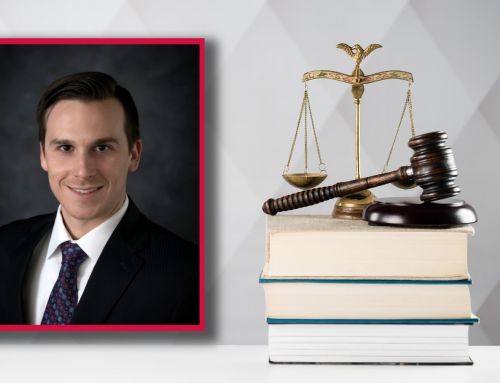The World Health Organization declared the SARS-CoV-2 virus and the disease it causes, named “coronavirus disease 2019” (COVID-19), a pandemic. This designation signifies that COVID-19 is a global disease outbreak, which occurs when a new virus emerges for which there is little or no immunity in the human population, begins to cause serious illness, and then spreads easily person-to-person worldwide. At this time, no one knows how severe this outbreak will be, but there are now dozens of known cases of it in Minnesota. Governor Tim Walz declared a peacetime emergency and coordinated Minnesota’s strategy to protect Minnesotans from COVID-19. Given this uncertainty, and the fact that the seasonal influenza (flu) virus is also widespread, cities should take proactive steps to address a number of city workplace concerns.
Here is a summary of five things that cities should consider and describe in an overall city pandemic plan:
- Keep the workplace safe and healthy
Employers should be proactive in preventing the spread of illnesses in the workplace practically and legally. To do this, the CDC recommends at https://www.cdc.gov/coronavirus/2019-ncov/community/guidance-business-response.html that employers:
- Actively encourage employees with sick symptoms or who have been exposed to COVID-19 or traveled to a countries with widespread sustained (ongoing) transmission of COVID-19 as established by the CDC to stay home
- Remind employees of respiratory etiquette and hand hygiene
- Perform routine environmental cleaning
- Advise employees before traveling to take certain steps
- Establish notification: (i) from employees of concerning symptoms or contacts with others or in areas with widespread symptoms; and (ii) to employees about employees with symptoms or such contacts
Because of the increasing spread of COVID-19 and state and federal officials’ guidance to avoid close contact and gatherings of individuals, cities may want to consider closing certain facilities and/or prohibiting nonessential employees from working for the city.
- Applicability of policies and contracts
In implementing changes to components of employment during a pandemic, cities must generally comply with all specific requirements of personnel policies and employment and labor contracts related to items such as hours of work, absences, furloughs (i.e., temporary reduction in hours of work), and layoffs (i.e., separation from employment due to lack of work). But, personnel policies may provide some discretion for management to modify its application of such policies and cities generally can change any components of employment when such changes are not directly contrary to a labor contract or personnel policies. In addition, governing bodies can generally establish or modify policies at its discretion, but it cannot implement such changes that are in direct conflict with a labor contract. Finally, if a city declares a state of emergency, it may deter and/or provide a good faith rebuttal to any action an employee or union asserts should have been negotiated or did not comply with the relevant contract. But, such a declaration does not provide a substantially legally viable defense to any actions inconsistent with a contract, unless a city has a provision in the labor contract providing that it can take certain actions that may conflict with a labor contract in the case of an emergency.
Accordingly, cities should notify and discuss with union representatives any intended actions that substantially impact components of employment for unionized employees. But, in any communication to unions, cities should not concede that anything is negotiable, but the city is willing to meet and negotiate anything that is negotiable.
- Leaves
Generally, accrual and usage of paid leaves, such as sick and vacation or paid/flexible time off are specified in personnel policies and/or labor contracts. But, to encourage employees to be absent from work when they have symptoms of being sick, were exposed to a communicable disease, or traveled to a countries with widespread sustained (ongoing) transmission of COVID-19 as established by the CDC, employers may want to be more flexible in allowing use of such time (i.e., notice and documentation requirements). To encourage this while also providing some reasonable parameters, such as the short-term nature of this flexibility, cities should submit a notice like the following to employees: sample notice to employees related to COVID-19.
Cities can prohibit employees from working for the city consistent with the Americans with Disabilities Act if the city has a reasonable belief based on objective evidence that employees will pose a direct threat due to a medical condition, which includes that they were exposed to COVID-19 or traveled to a countries with widespread sustained (ongoing) transmission of COVID-19 as established by the CDC. Cities as employers cannot force an employee to stay home – they can only prohibit them from working. Cities should notify specific employees that the city is prohibiting the employee from working on an interim basis, give the employee an opportunity to respond in writing if the employee disputes such an action, and allow the employee to use any available paid leave time. Cities should take such actions to deter or provide a viable defense to employees and/or unions that dispute such a prohibition from working. For example, unions may assert that such an action is a furlough (i.e., short-term reduction in hours worked for an individual) or layoff (i.e., long-term elimination of work). But, complying with the recommended steps described in the document will establish a decent defense to such assertions.
For any such leave, cities should comply with the federal Family and Medical Leave Act requirements for serious health conditions or caring for a family member such a condition.
- Telecommuting option
To encourage employees to stay home when they are symptomatic or mitigate the spread of communicable disease, cities may want to consider temporary telecommuting or working remotely for certain employees. Before pursuing this action, cities should establish written guidelines addressing employees that may be eligible, parameters of when work can be performed, equipment to be used, appropriate retention and safeguarding of data, and expense reimbursement or not.
- Different individuals performing an employee’s work
With an employee’s absence due to sickness or furlough, cities need to ensure the essential work that was performed by such employee is still being done. To do this, the city will need to consider having other employees, supervisors, and/or contractors perform the work. If work that was performed by an absent employee covered by a labor contract is performed by an employee not covered by the labor contract or a contractor, a union may dispute such work being done by the others as impermissible performance of bargaining unit work performed by a non-bargaining unit employees. But, the city can establish a viable defense if it describes in writing the short-term nature and emergency reasons for the work being so performed.
Overall, cities should also consider that dealing with the above-issues will result in potentially increased costs, decreased efficiency, and less extensive services for the community.
If you need any assistance on handling a pandemic in the workplace or any other labor employment advice, please contact Flaherty & Hood labor and employment attorneys Brandon M. Fitzsimmons (bmfitzsimmons@flaherty-hood.com) or Chelsea J. Bodin (cjbodin@flaherty-hood.com).



